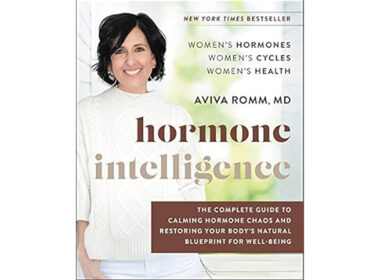“In the animal world, monogamy has some clear perks,” says an article on science.org detailing the findings of scientists who investigated the traits of animals that mate in monogamous pairs (meaning, they have only one mate for a season or for life). The scientists found that the biological advantages of monogamy include increased ability to care for offspring and protection against infanticide. According to the same science.org article, some scientists even speculate that over the course of evolution, the human brain was able to develop to its current size and capacity because of the combined nurturing of both monogamous parents.
The idea is simple enough–increased care for a living thing produces increased quality of life. But would you believe that monogamy in your own sexual relationship (micro level) can even have positive implications for the environment (macro level)? It’s true. Committing to the ideal of a monogamous, committed relationship, and using a fertility awareness method (FAM) or method of natural family planning (NFP) instead of birth control and condoms, is what one might call “green” sex, and it’s great for you, your family, the environment–and the world!
Monogamy matters to the environment
Mankind is both part of a social environment and a main player in the physical environment (I’m using the term “the environment” here in the broad way often used by folks in climate change discussions). We often hear that every decision we make can affect the environment, especially our decisions around reproduction. We are reminded daily about our impact on the environment and our (possibly) urgent need to make change now; so what can we do? What should we do?
From both a physical and social standpoint, the best thing we can do for the world around us is to form stable family relationships. To put it another way, the most natural, or “green” sex we can have is actually committed sex. If that idea feels far-fetched, don’t stop reading now! I promise to explain the rationale, and how you can “green” your sex life for your benefit–and the environment’s.
Non-committal sex is not green sex–and it’s not good for the environment
Aside from the fact that committed (read: monogamous) couples tend to report “better” sex than non-committed couples, committed sexual relationships also benefit the environment. People engaging in unattached hookups or other non-monogamous relationships typically feel the need to resort to some sort of birth control in order to prevent unplanned pregnancy (not to mention condoms to protect against STDs), while monogamous/committed couples may not feel that pressure to the same extent (although, of course, many still choose to employ birth control for family planning). We won’t go into the numerous relationship advantages of FAM here, but rather, we will take a glimpse at the environmental damage that the pill and condom use causes.
How the Pill is hurting the environment
First off, the synthetic hormones in hormonal birth control don’t just wreak havoc on women’s hormones–they hurt the environment too, primarily by affecting our waterways. The synthetic hormones in birth control (most especially synthetic estrogen) are excreted by the woman’s body through her urine, and this in turn introduces estrogen into our wastewater. And, unfortunately, our wastewater treatment plants are not equipped to filter out ingredients from pharmaceuticals like birth control pills.
It’s a recognized phenomenon that because of an excess of estrogen in our waterways, male fish and other aquatic creatures can become “feminized.” Some studies have found that even trace amounts of estrogen in the water can decrease the population of fish and skew gender ratios. Interestingly enough, a similar effect was found in Japanese fish from trace amounts of BPA, or the chemical often used to make plastics.
How often do we read “BPA-free” on our plastics with relief, but then flush other chemicals down the toilet without thought? And how many other creatures, including humans, are being negatively impacted by the synthetic hormones in our water? There’s still much to learn about the effects of estrogen in our waterways and water supply, but what we know so far from studying fish in our waterways is not reassuring.
Condoms can inflict environmental harm as well
So, one might be wondering, are condoms superior to birth control pills when it comes to environmental impact, since they at least don’t contribute hormones to our water supply? The answer, unfortunately, is “no.” Latex condoms are supposedly biodegradable, but only after many years and under stringent conditions, and polyurethane ones are not biodegradable at all (and one wonders how often the right conditions are met for the millions of condoms thrown away each year).
Knowing this, someone in a non-committed sexual relationship could still theoretically use “biodegradable” condoms made of lambskin, but those often do not protect against STDs. Furthermore, non-monogamous sexual partners are (hopefully) testing for STDs frequently, which in turn generates significant medical waste like needles or plastic wrappings. (And, of course, if a partner tests positive for an STD, a condom is recommended.) Even Columbia University’s Ask Alice advice column admits that condoms made of more eco-friendly material only work if both partners are free of STDs, and in a monogamous relationship.
Children: environmentally neutral, net negative, or net positive?
So, what is one to do for responsible family planning that won’t hurt the environment? Let’s say that a couple embraces something different for their family planning–say, a fertility awareness method (FAM), or method of natural family planning (NFP)–which allows them to avoid the use of condoms and birth control, and so minimize their impact on the environment.
If they are in a committed, monogamous relationship, more than likely they will choose at some point to have children. But many would argue that they should not have more than one or two, especially if they are trying to decrease their negative impact on the environment. Since people are often blamed as the source of environmental issues, the argument goes, an excess of future people should be avoided. According to this press release for a 2009 study by Oregon State University (OSU), the carbon impact of a child is “almost 20 times more important than some of the other environmentally sensitive practices…like driving a high mileage car, recycling, or using energy-efficient appliances and light bulbs.”
Why having children is an important component of green sex
Interestingly, some social scientists point out that demographic decline, not overpopulation, is the most pressing concern in many parts of the world. Furthermore, others dispute whether increased carbon dioxide actually harms or benefits the environment.
Regardless of whether there are too many or too few people in the world, or whether increased CO2 hurts or helps the environment, perhaps the most glaring issue with the OSU study (and others like it), is that it does not take into account a human being’s overall impact on the world around her, instead emphasizing only the negative. But what about the people who plant gardens or work in forest conservation? What about the people who help the poor and fight for justice? What about the people who create art and make the world a more beautiful place? What about the people who rescue animals (especially animals from the brink of extinction)? What about the people who have come up with clever solutions to problems, such as how to clean waste water and how to recycle plastic bags? Ironically, even those who promote decreasing the human population are trying to address a perceived problem.
It should go without saying that people are always a necessary part of the solution to any problem. Well-known psychologist Jordan B. Peterson argues, you need intelligence to brainstorm solutions, and thus we should invest in educating our children well, not preventing their existence. No solution will truly be a long-term solution if nobody’s around in the long-term. Our children have a more positive impact on the world than we know, as recognized by this father of ten.
A stable relationship allows your children to “go green”
Whether you choose to have one child or many, the very best thing you can do to incorporate environmentally-conscious practices is stay in a stable, committed relationship. “It is better, financially, to be married than single, as has almost always been the case,” reports a recent Wall Street Journal article on the ever-widening income inequality between single and married households. Why is this significant? Because from eating organic food to purchasing solar panels, environmental practices are often expensive. Most people, while probably agreeing that some sort of care for the environment is good, are hesitant to blow their budget in the name of saving the planet: “Surveys show few people are willing to spend more than a few hundred dollars a year on climate policies. Asking people to spend tens or hundred times more is a recipe for failure,” says an article from The New York Post.
Imagine, then, the children who come from single-parent homes or broken homes; in these situations, more often than not, it’s a struggle to keep food on the table, let alone organic food. Furthermore, children from broken homes are more likely to repeat the trend of non-commitment in their own relationships, and tend to struggle psychologically, physically, and academically, more so than their peers. In other words, if a child does not have a committed mother and father in the home, he will be less likely to take care of himself and less likely to take care of the world around him. Making ends meet will be the priority, since the parents are no longer a joint force against the tide of bills and other financial obligations. How can we expect someone to look to the future when he spends most of his time looking to the next paycheck?
Monogamous green sex builds up the family, and protects the environment
It’s pretty clear that the family provides the perfect (social) environment within which human beings can learn to care for their (physical) environment. Parents in a committed relationship have more time and resources for doing things like showing their children how to buy from local farmers and where to find clothes that are made sustainably. Parents in a monogamous relationship can make time to cook real meals with their children on real dishes, to recycle and compost, and maybe even to garden together. These things take time and effort, but they are good. It is not inconceivable to do these things in single-parent families, of course, but why not set ourselves (and the environment) up for success as much as possible and commit to one another, and to “green sex,” too? Our children–and our world–will thank us.
References:
[1] Pachauri A, Shah P, Almroth BC, Sevilla NPM, Narasimhan M. Safe and sustainable waste management of self care products. BMJ. 2019 Apr 1;365:l1298. doi: 10.1136/bmj.l1298. PMID: 30936055; PMCID: PMC6442657.Additional Reading:
Pill chemicals in waste water cause endemic feminization of male fish
Protecting boys and men from endocrine disruptors
Simple ways to protect your health and fertility from endocrine disruptors
3 simple tips to limit endocrine disruptors and balance hormones naturally







